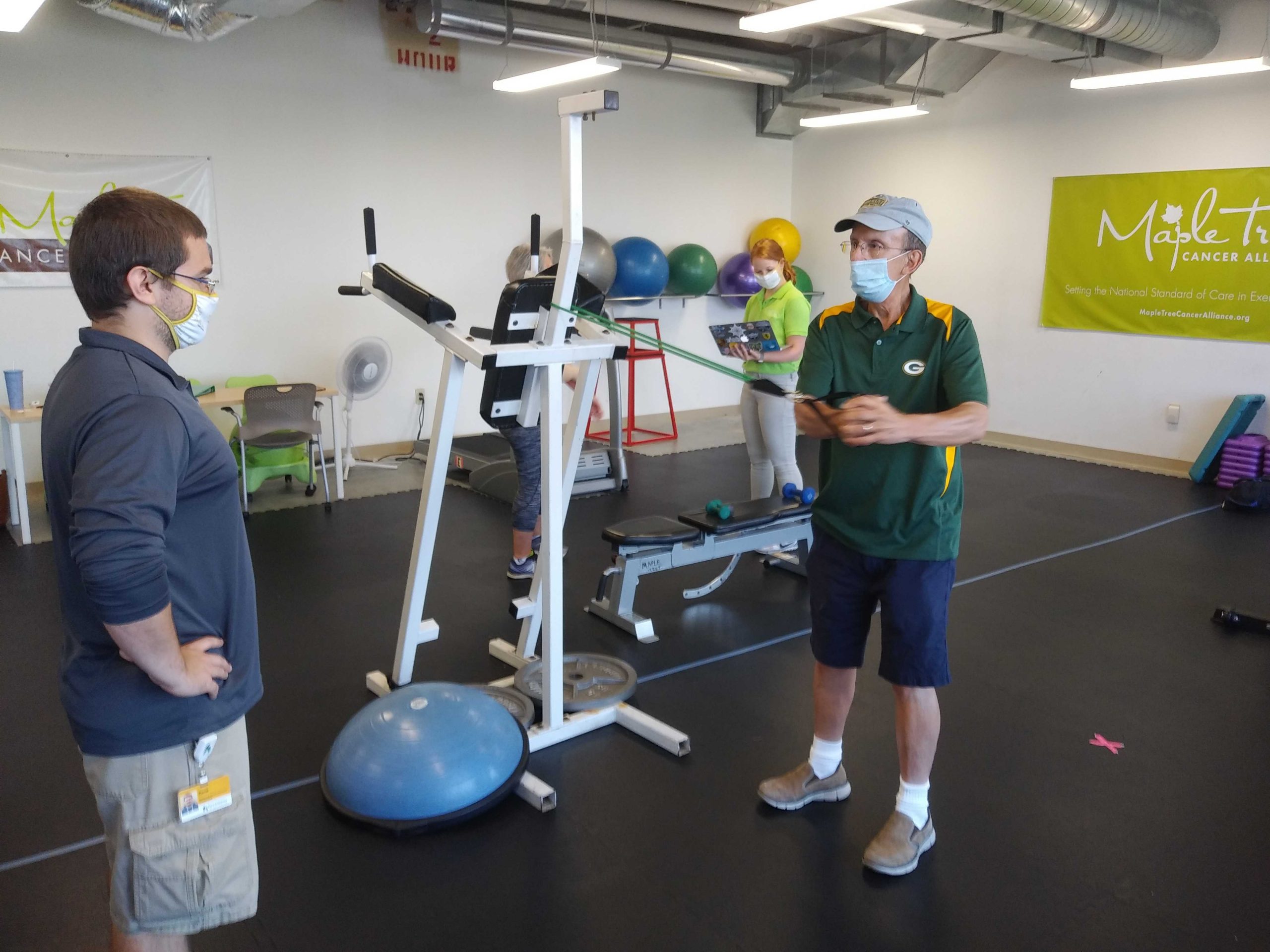Chances are, if you are battling cancer, you’ve suddenly been made keenly
aware of your immune system. Your white blood cells have been counted. Your
lymph nodes have been analyzed. Your extremities have been closely studied for
possible signs of swelling. You have learned more about toxins and bacteria than
you ever thought possible.
Perhaps you’ve learned just enough about your immune system to get through
your appointment. Perhaps just enough to know what to hope for when those
little white blood cells are being counted. But – beyond this surface information,
how much do you really know about your immune system?
In the blog today, I would like to spend some time talking about the immune
system – an amazing network of cells, proteins, and tissues that work together to
protect your body against infection.
Together, we will explore the following topics:
1. What is the immune system?
2. How is it impacted through cancer and cancer treatments?
3. How can exercise help boost your immune system?
To start, your immune system protects your body from outside invaders, such
as bacteria, viruses, and toxins. It is made up of different organs, cells, and
proteins that work together to fight infection.
The main parts of the immune system are: white blood cells, antibodies, and the
lymphatic system.
White blood cells are made in your bone marrow and are part of the lymphatic
system. They include lymphocytes (such as B-cells, T-cells and natural killer
cells) that move through your body looking for foreign invaders. When they find
them, they launch an all out immune attack to destroy them.
Antibodies help the body to fight toxins. They do this by recognizing substances
called antigens on the surface of the toxin, and subsequently marking these
antigens for destruction.
The Lymphatic system is a network of tubes throughout the body, which work
to manage the fluid levels in the body and remove toxins. The lymphatic system
is made up of lymph nodes (which trap toxins), lymph vessels (which carry lymph
fluid), and lymphocytes (white blood cells)How is the immune system
impacted through cancer/cancer treatment?
Cancer and its associated treatments can negatively impact the immune
system.
One way this happens is that cancer cells can get into the bone marrow, where
blood cells are made. The cancer cells then compete with the normal bone
marrow cells for space and nutrients. If too many normal bone marrow cells are
destroyed or pushed out of the bone marrow, the few cells that are left won't be
able to make enough white blood cells to help the body fight infection.
In addition, cancer treatments can also interfere with the way the immune system
works. For example, chemotherapy can’t tell the difference between a healthy
cell and a cancer cell. As a result, healthy cells that rapidly divide are often
damaged. These cells include white blood cells, which can lead to a decreased
immune function.
Damage to your immune system means your body may not be able to fight
infections as well as it should.
But there is hope!
It is widely agreed in the literature that regular moderate intensity exercise is
beneficial for immunity.
Research shows that regular exercise can prevent, or even possibly reverse, the
decrease in immune function observed with cancer.
This immune response is dependent on the intensity and duration of the exercise
program.
During moderate-intensity aerobic exercise, there is an increase in the circulation
of some key components of our immune system, including white blood cells
(specifically, natural killer cells, T cells, and B cells), anti-inflammatory
cytokines, and neutrophils.
One word of caution – Extremely vigorous or long duration exercise can activate
stress hormones, which can suppress immune cell function. Research indicates
that this does not occur during a short duration, moderate exercise bouts of
exercise.
Bottom line:
Regular physical activity can strengthen your immune system and help
your body fight off infections and viruses.
Aim for at least 30 minutes of exercise, five days a week. This can
include walking, biking, yoga, swimming, or other low impact workouts that you
enjoy.
Exercise is Medicine!

